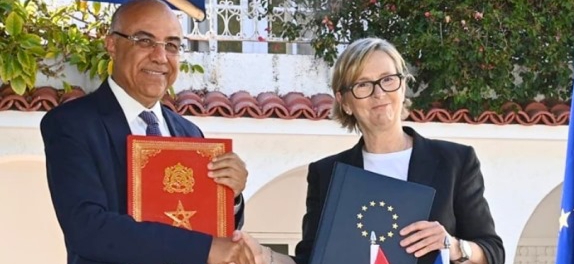The economic policies of the U.S. affect global markets, trade agreements, and international economic stability. Due to the global influence of the U.S., presidential elections have had significant impacts on the world. U.S. foreign policy decisions, including military interventions, alliances, and diplomatic relations, significantly influence global geopolitics. In the same vein, U.S. advocacy for human rights and democracy, climate, and health initiatives shape global norms and influence the policies of other nations.
President Joe Biden’s administration regulated big tech companies, with implications for global digital markets and privacy standards. These regulatory changes affect how technology companies operate worldwide and set precedents for international tech policies. One of Biden’s first actions after his election in 2020 was to rejoin the Paris Agreement, signaling the U.S. commitment to addressing climate change.
President Donald Trump’s election in 2016 led to significant shifts in global trade dynamics. According to the IMF’s World Economic Outlook in 2020, Trump’s administration’s imposition of tariffs on Chinese goods led to a trade war that saw the U.S. place tariffs of up to 25% on $250 billion worth of Chinese imports. In response, China retaliated with tariffs on U.S. products, disrupting global supply chains and leading to a 0.6% reduction in global GDP growth.
This trade war affected global markets and supply chains, influencing economic policies worldwide. Trump also renegotiated the North American Free Trade Agreement (NAFTA), resulting in the United States-Mexico-Canada Agreement (USMCA). The USMCA’s impact on North American trade was evident, with U.S.-Canada trade increasing by 9% in 2021 compared to 2020, and U.S.-Mexico trade rising by 6% over the same period, according to U.S. Census Bureau data.
President Barack Obama’s election in 2008 led to changes in U.S. foreign policy, including efforts to improve relations with Middle Eastern countries. The Iran Nuclear Deal (Joint Comprehensive Plan of Action) in 2015 was a significant outcome, which aimed to curb Iran’s nuclear program in exchange for lifting economic sanctions. The International Atomic Energy Agency (IAEA) reported that Iran agreed to reduce its stockpile of low-enriched uranium by 98%, from about 10,000 kg to 300 kg. It also agreed to limit uranium enrichment to 3.67% for 15 years, well below the 90% needed for weapons-grade material. Obama also restored diplomatic relations with Cuba, easing travel restrictions and opening up economic opportunities between the two countries.
Possible Implications of 2024 U.S Elections
Vice President Kamala Harris has launched her 2024 presidential campaign with the backing of President Joe Biden. This decision follows Biden’s withdrawal from the race, driven by concerns over his age and health, marking a significant moment in U.S. political history. As Harris embarks on her journey to secure the White House, the implications of her campaign resonate across the political spectrum, promising to redefine the future of the Democratic Party and the nation.
President Joe Biden’s decision to step aside from the 2024 presidential race was not made lightly. Sources close to the administration reveal that Biden agonized over poll data and mounting concerns about his capacity to endure the rigors of another campaign. His statement, issued at the Democratic National Convention, emphasized the importance of unity and the need for a new generation of leadership. Biden’s withdrawal has sparked a range of reactions, from disappointment among loyal supporters to a sense of relief among those worried about his age.
Vice President Kamala Harris wasted no time capitalizing on the momentum. Her campaign launch was marked by a series of high-profile events, including a rally in Fayetteville and a visit to a clinic that performs abortions in St. Paul, underscoring her commitment to women’s rights. Harris’s campaign quickly gained traction, raising nearly $50 million within weeks of Biden’s endorsement, showcasing her ability to mobilize Democratic support and secure critical funding.
Harris’s strategy involves consolidating support within the Democratic Party. She has already secured endorsements from all state Democratic party chairs and key figures within the party. However, notable silence from influential Democrats like Nancy Pelosi suggests ongoing negotiations and the need to address various factions within the party. Harris’s ability to unify these groups will be crucial for her campaign’s success.
Former President Donald Trump, the Republican presidential nominee, hasn’t responded to Harris’s candidacy. Trump supporters are expressing confidence and readiness to run against Vice President Kamala Harris following President Joe Biden’s announcement that he is dropping out of the 2024 race. Publicly stating that Harris would be easier to defeat than Biden, shifting his campaign strategy to confront the new Democratic frontrunner.
READ ALSO: Political Gender Representation in Zambia: Successes and Challenges
If elected, Harris would be the first female president and the first woman of color to hold the highest office in the U.S., symbolizing a monumental step toward diversity and representation in American politics.
Harris’s presidency could bring significant shifts in domestic policies, particularly in areas like healthcare, women’s rights, criminal justice reform, and climate change. Her progressive stance on various issues is likely to shape legislative priorities and executive actions.
Trump’s victory would likely result in the continuation and expansion of conservative policies, including deregulation, tax cuts, and a focus on traditional values. His administration would prioritize conservative judicial appointments and rollback of progressive initiatives. Supporters argue that his policies are better suited for economic recovery and growth compared to Harris’s more progressive agenda.
Harris’s campaign and potential presidency might catalyze a realignment within the Democratic Party, strengthening progressive factions and potentially redefining the party’s platform and electoral strategies for future elections


